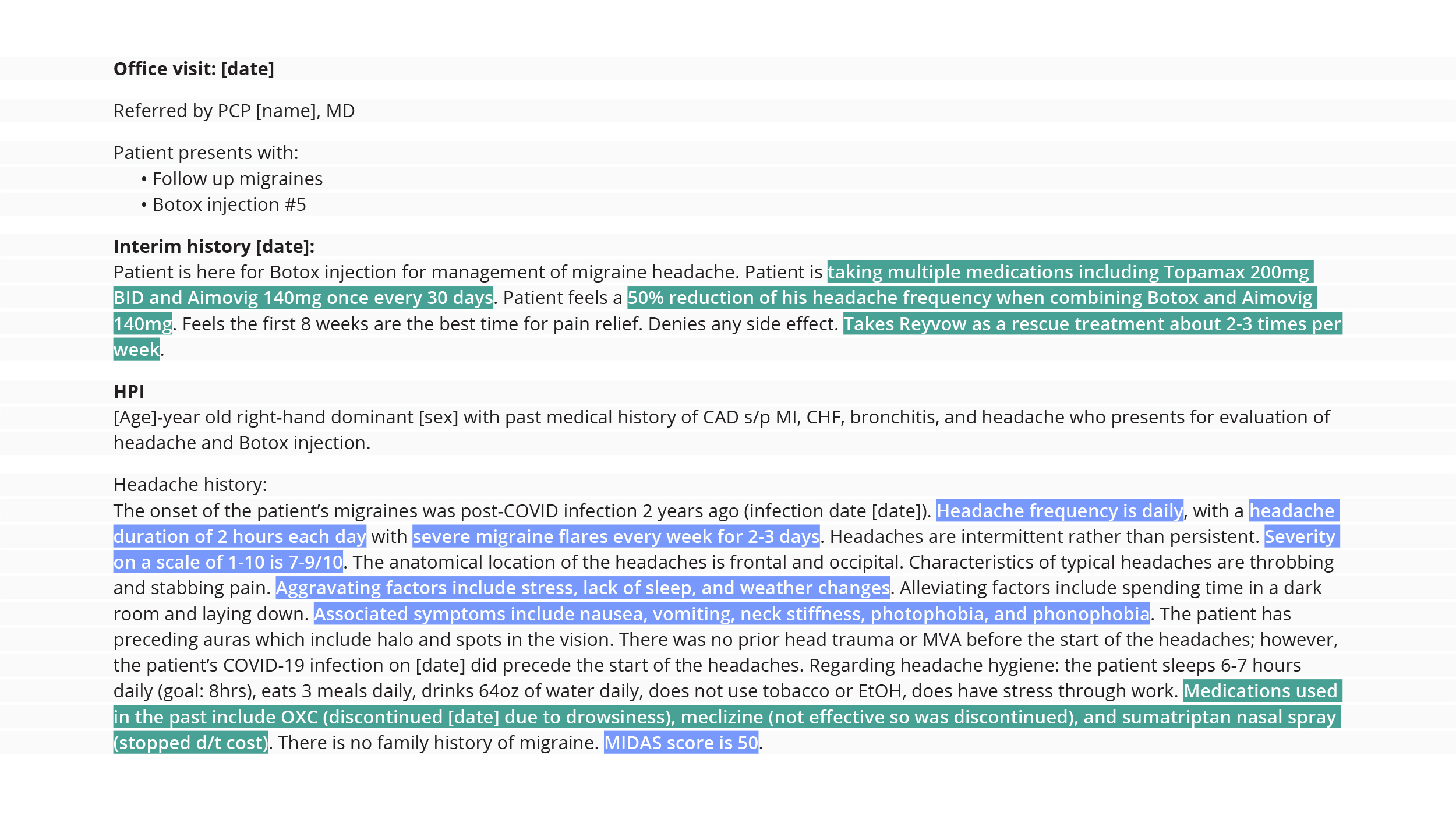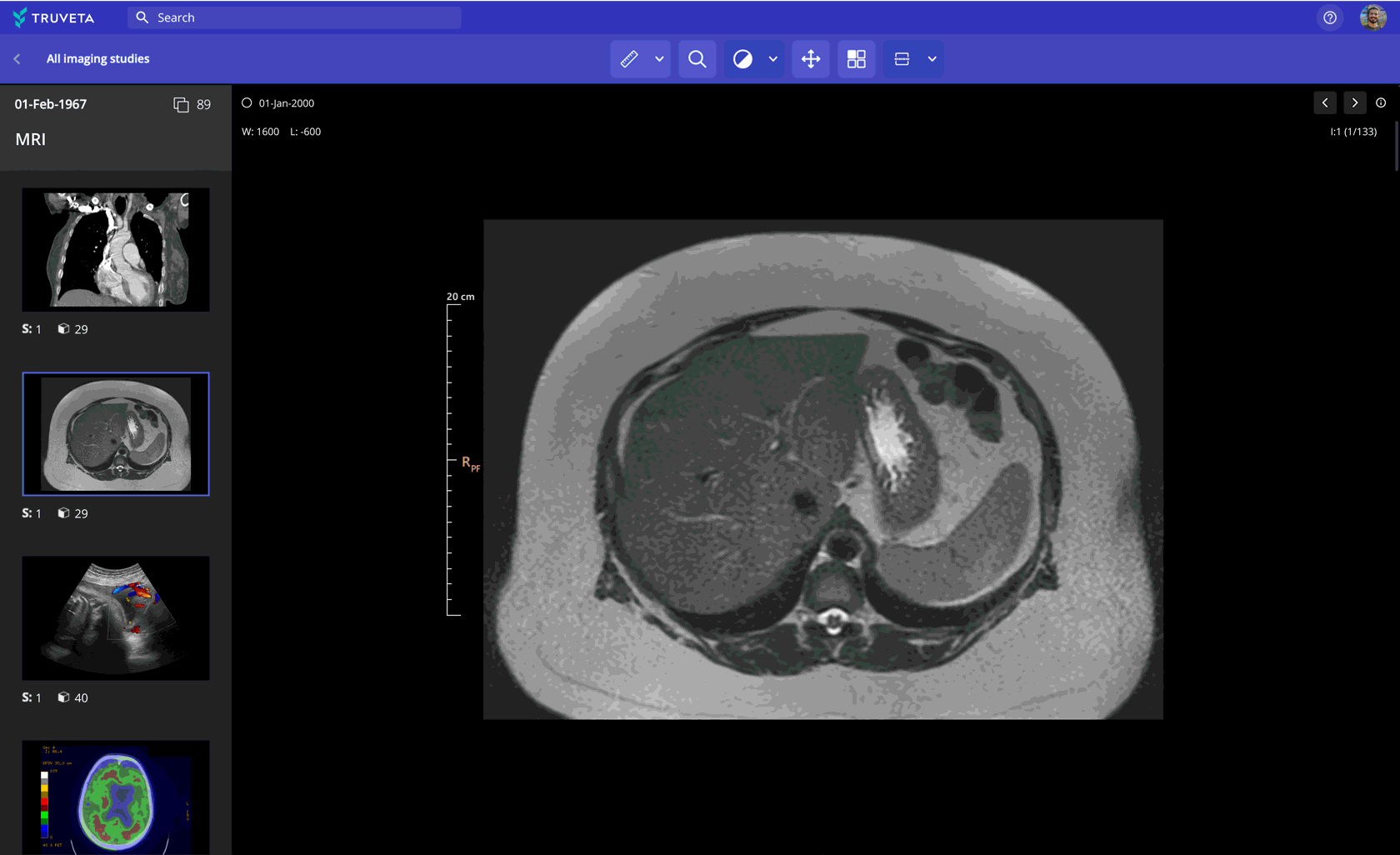Today we are excited to announce the availability of expanded concepts from clinical notes — including family history, medication details reported to providers, and complex concepts for a wide range of therapeutic areas from cardiology to rare disease and more – and millions of de-identified medical images for scientifically rigorous research.
Truveta delivers the most complete, timely, and clean electronic health record (EHR) data from more than 100 million patients across more than 30 US health systems, empowering researchers with regulatory-grade data across all diseases, drugs, and devices. Truveta Data is representative of inpatient and outpatient care, from over 800 hospitals and 20,000 clinics serving patients from all 50 states. By providing a complete view of the patient journey, Truveta enables researchers to accelerate therapy adoption, improve clinical trials and enhance patient care.
Access to complex concepts captured in clinician notes or medical images has been limited by manual processes, impeding the ability to study large, representative, and diverse populations in depth.
With the most advanced AI, trained by clinical experts, Truveta delivers complex clinical concepts – as well as de-identified medical images and their associated metadata – for study integrated with the most complete, timely, and clean EHR data.
Advanced concepts from clinical notes
One of the biggest challenges in medical research has been that critical information about a patient’s health is locked away in the unstructured text in clinician notes.
Truveta receives all clinical notes that are written during a patient’s care. These include progress notes (which are standard units of documentation when a patient sees their physician), nursing evaluations, procedure/operative reports, laboratory reports, notes from pathology and diagnostic imaging studies, and many others. The breadth of these notes builds a complete view of a patient’s care, which is often missing from medical claims optimized for billing purposes. Using the most advanced, award-winning AI technology, we extract the data from these notes and clean it to enable research.
Today, we announced the availability of new concepts extracted from clinical notes — including medication details, family history, and complex concepts for a wide range of therapeutic areas from cardiology to rare disease and more.
Examples of these new concepts include medications that aren’t captured in the patient’s medication list, such as those prescribed by another provider, over-the-counter medications, or naturopathic therapies. Important family history details, severity and frequency of symptoms and conditions, details about how well medications are working to improve symptoms and reasons for switching medications, clinical assessments, and even descriptions of diet or exercise, are also included.

These concepts join existing data from more than five billion clinical notes, including data extracted from echocardiogram and cardiac catheterization reports. For example, Truveta Data includes more than 69 million distinct cardiac measurements from more than 3.4 million echocardiogram reports. In addition, Truveta Data also includes 4.7 million distinct catheterization measurements from nearly 700,000 cardiac catheterization reports, making Truveta the leader in real-world data for cardiovascular research.
Customers have benefitted from the breadth and depth of Truveta’s clinical notes for many conditions, including colon cancer, migraines, seizures, NASH, heart failure, vessel disease, hypercholesterolemia, rare diseases, and others.
The largest and most complete medical image dataset
Valuable information about patients is available in images and their associated metadata, but isn’t routinely captured in real-world datasets. And, the rarer the condition, the more difficult it is to find de-identified images to deepen research on that condition.
Truveta now empowers researchers to learn from millions of de-identified medical images – across all modalities, including MRI, CT, X-ray, ultrasound, mammogram, and nuclear medicine –integrated with the patient’s EHR data to more deeply understand symptoms, diagnoses, disease progression, and more.
Over 85 million imaging studies include 39 million digital X-rays, 14 million ultrasounds, 16.5 million CT images, 5.2 million MRI images, 500,000 nuclear images, and 10 million mammograms.
Medical images are updated daily, cleaned with clinical expert-led AI, and de-identified with industry-leading privacy and security technology.

Truveta Data includes complete metadata on each image, such as the size, dimensions, bit depth, modality used to create the data, and equipment settings used to capture the image. These raw pixel data, which are not found in the EHR or in clinical notes, are required to build intelligent AI/ML algorithms that can interpret images and be used to enable point-of-care diagnoses within medical devices, as well as automate and accelerate clinical research and development.
A new imaging viewer in Truveta Studio enables researchers to view thousands of images at a time, including single view or multi-view, with built-in annotation tools for marking up images, enabling researchers to view the images associated with their patient populations, and even export them for training algorithms for diagnostics, peer-reviewed research, or regulatory filings. Images can be analyzed in notebooks in Truveta Studio and included in studies for scientifically rigorous research.
By directly integrating imaging and pixel data with complete patient medical records, Truveta bridges critical evidence gaps and elevates patient insights, ultimately leading to improved patient outcomes.
